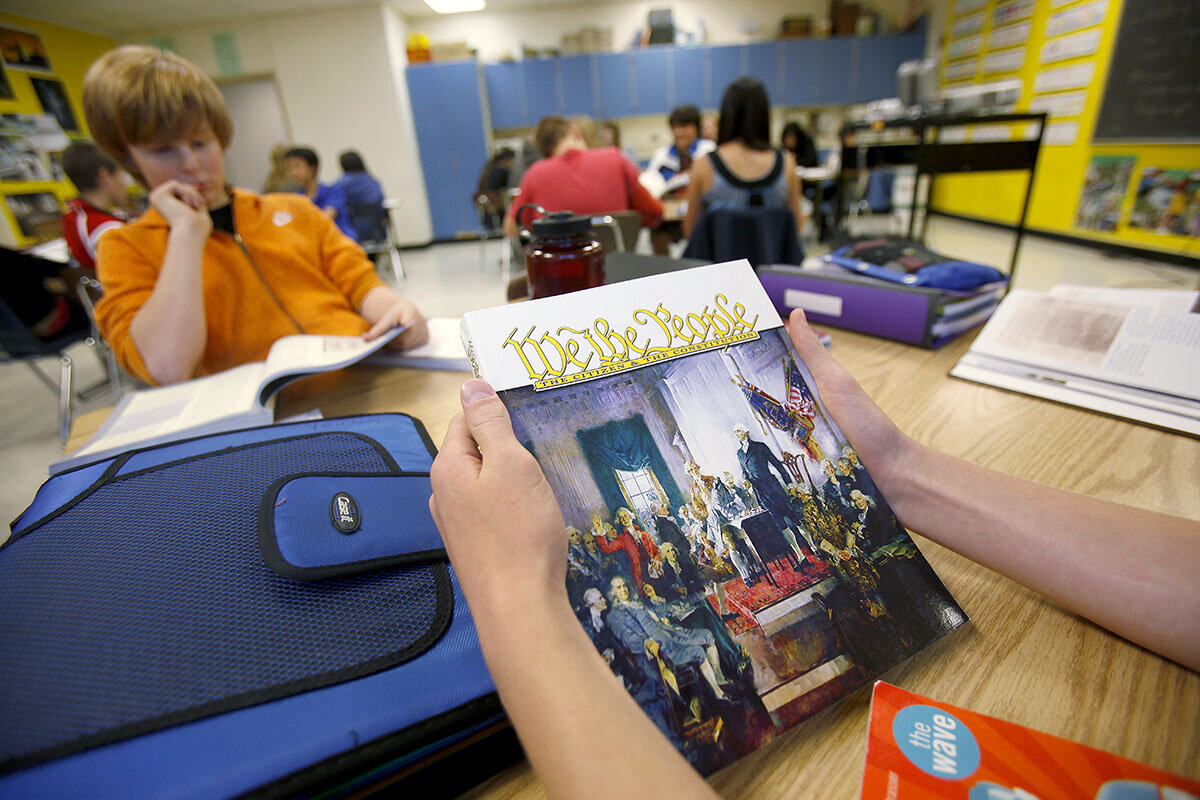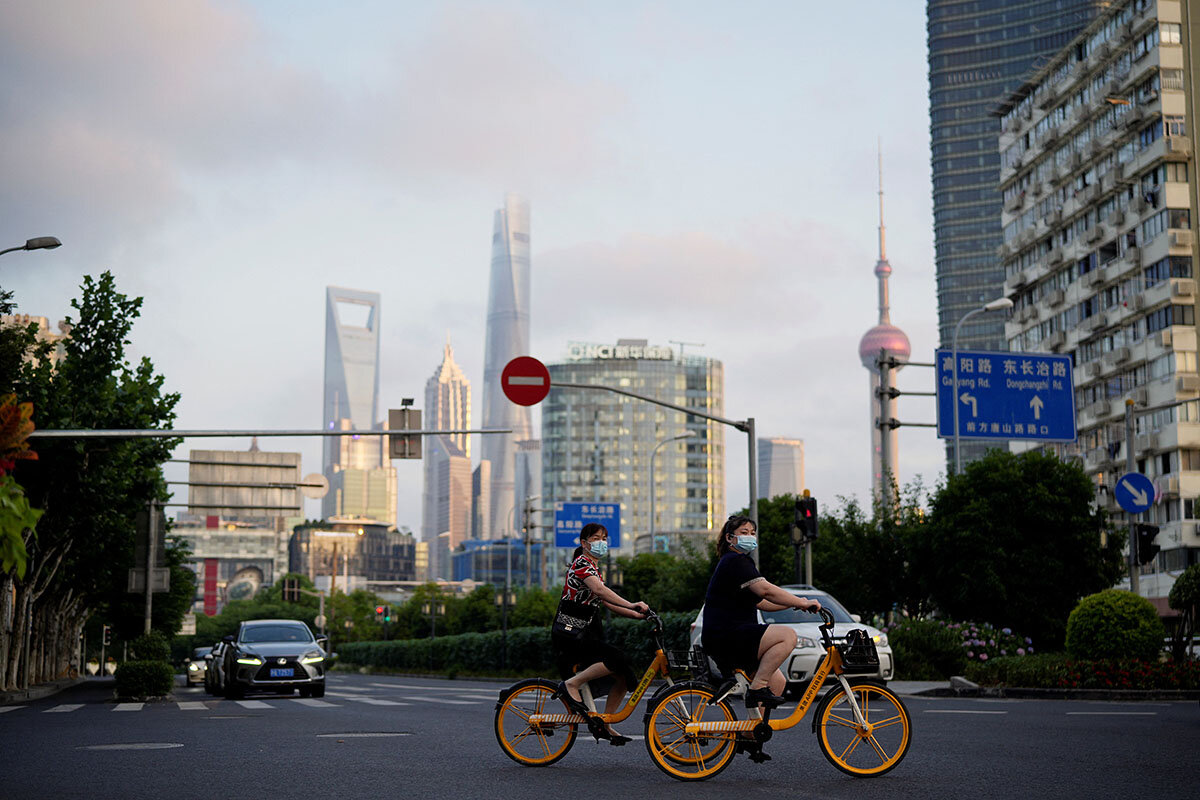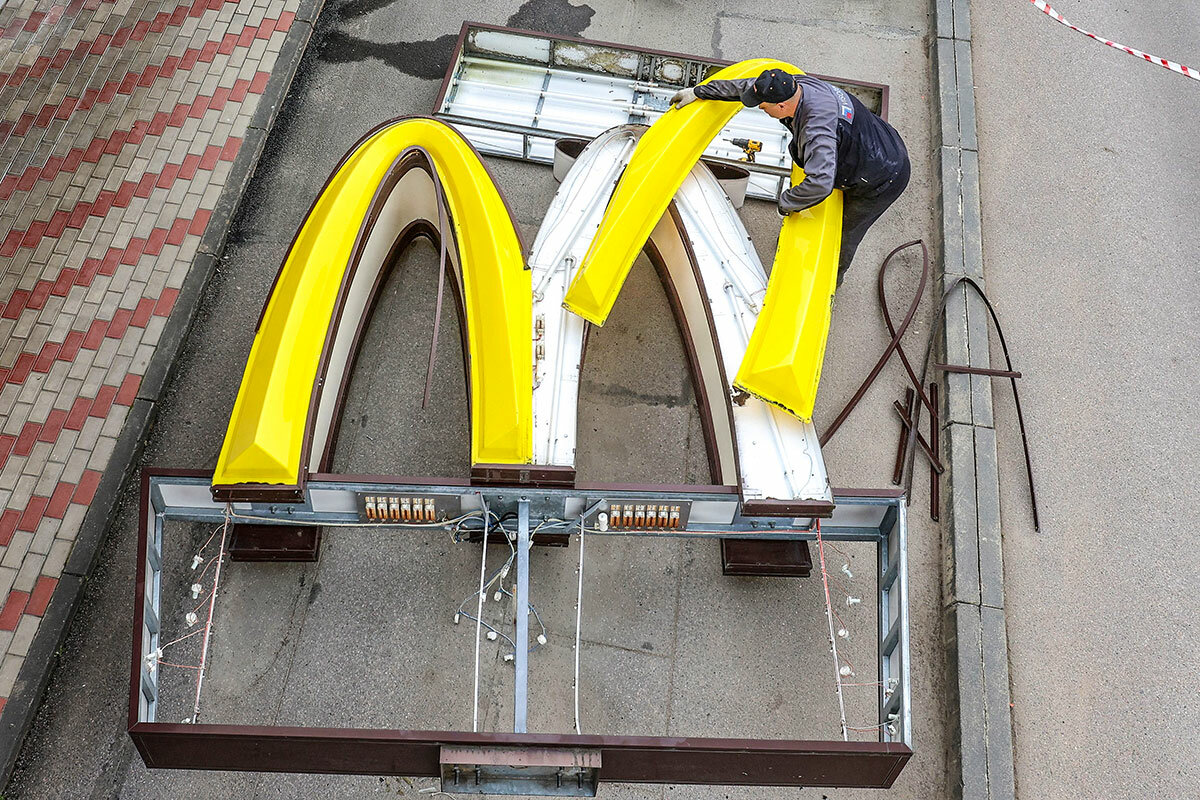The Founding Fathers considered public education a cornerstone of American democracy – critical to choosing good leaders. Is civics education today being nudged out by partisan politics and economic priorities? The first of a series.
Monitor Daily Podcast
- Follow us:
- Apple Podcasts
- Spotify
- RSS Feed
- Download
 David Clark Scott
David Clark Scott
Put yourself in Dustin Johnson’s size 13 Adidas.
You just joined a new pro golf league, featuring other top golfers including Phil Mickelson. But the league isn’t being lauded for its innovation, or better pay, or for potentially creating more entertaining tournaments for fans.
Instead, many observers are vilifying Mr. Johnson (and others) for being disloyal, greedy, and engaging in sportswashing.
Why? The new LIV Golf Invitational series is financed by Saudi government funds. Critics say this rival to the United States’ PGA Tour is simply a bid to sanitize a regime with a notorious record of human rights abuses.
The first of eight tournaments begins Thursday in the United Kingdom, featuring a big prize purse. Mr. Johnson, a 24-time winner on the PGA Tour, is also reportedly being paid a $125 million “signing bonus.” That’s nearly twice what he made in prize money during his 15-year PGA career. “People can see it for what it is, which is a money grab,” said Irish golfer Rory McIlroy, who has 20 PGA wins.
The PGA threatened to ban anyone who plays in the rival tour. But momentum may be swinging toward the Saudi tour. Mr. Johnson and five other golfers resigned this week from the PGA. Is Mr. Johnson being disloyal to the tour – and the corporate sponsors – that spawned his career? Perhaps. But don’t pro athletes regularly move to better paying teams? Mr. Johnson suggests a higher loyalty. “I chose what’s best for me and my family,” he said Tuesday.
The Saudi sponsorship adds still another layer to the question, in an era when athletes have increasingly been visible taking stands on moral questions.
What would you do if you wore his golf cleats?










